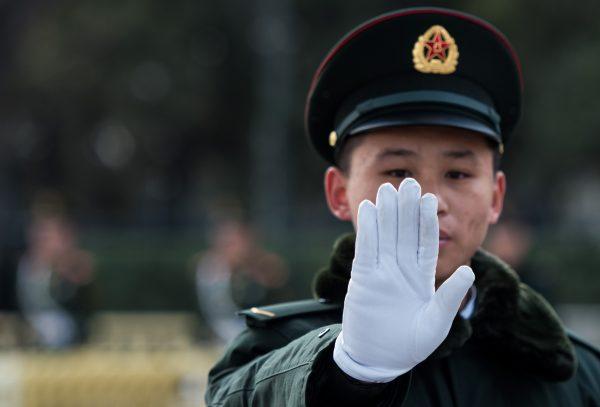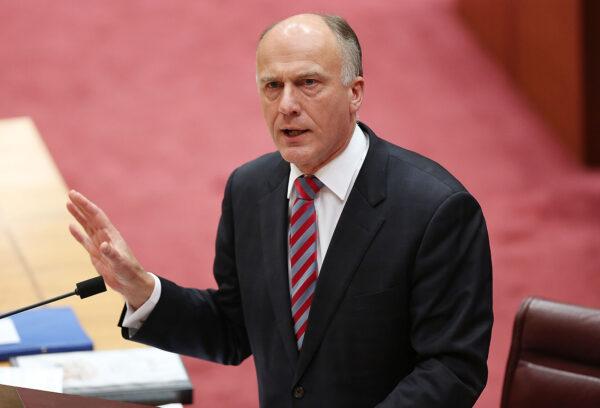An Australian Senate inquiry’s report on issues facing diaspora communities has recommended that the government consider increasing awareness of the National Security Hotline as a means of reporting foreign interference, particularly from the Chinese Communist Party (CCP).
While delivering the report to the Senate, the committee’s chair, Labor Senator Kimberley Kitching, said foreign interference proved to be a key issue for the inquiry.
“Unfortunately, some witnesses did not feel safe enough to give evidence in public,” she told Parliament. “We heard in-camera evidence from some because either they were frightened from past experiences with the regimes in their countries of origin or they feared for their families, whether those families be here or in their country of origin.”
The Labor senator said naming the regime of the country “from which witnesses felt threatened” was unavoidable.
“The regime there, is the Chinese Communist Party,” she said.

Kitching lamented that trade with China has led to silence on some of the worst atrocities committed by the CCP, but expressed hope in the next generation standing up against it.
“Our silence about these things, and the views of some that trade is more important than decency, are something young people are confronting and denouncing with an ever louder voice,” she said. “I say this in a literal sense, ‘We should thank God they are.’”
She added: “I pray they get louder and louder and louder.”
Liberal Senator Eric Abetz told The Epoch Times that having Australians afraid to give evidence to a Parliamentary inquiry demonstrated the urgent need to raise awareness of the National Security Hotline to protect Australia’s diaspora communities and “bring light” to the activities of foreign interference.
“Enacting this recommendation is fundamental to increasing transparency and helping diaspora communities counter interference by foreign governments,” he said.
Chinese People Are Not ‘Synonymous With the CCP’
Abetz said there needs to be greater understanding by the public that criticism of the regime and its activities can result in accusations of false racism and xenophobia.“This is employed as a deliberate tactic by the CCP and its operatives to silence opposition,” he said.
No matter how much the CCP falsely asserts it, the distinction must be made that the Chinese people, culture, and history are not synonymous with the CCP, he said.

During the inquiry, accusations of racism were levelled at Abetz who asked three witnesses from think tanks and the political sphere whether they were willing to condemn the CCP.
As he expected, they accused Abetz of racism for asking them the question because they were of Chinese heritage. However, as Abetz told Parliament, he was testing a prediction made by academic and author Prof. Clive Hamilton.
“You ask thought leaders and self-described experts to condemn the brutal dictatorship, and what do apologists do? As Professor Clive Hamilton predicted in his book, they immediately condemn you as racist and then offer sufficient criticism of the regime to retain credibility, but they will never condemn it,” Abetz said.
He added: “That might be one of the reasons why I invited some people to actually condemn the regime, and they failed to do so.”
Abetz asserted that the groups of people being persecuted by the CCP would have wanted those witnesses to “stand in solidarity with them” by condemning the CCP.
“I know what the Uighurs would have wanted them to do. I know what the Falun Gong practitioners would have wanted them to do. I know what the house Christians would have wanted them to do. The women that are being forcibly sterilised and raped as we speak would be wanting us in Australia to stand in solidarity with them,” Abetz said.





